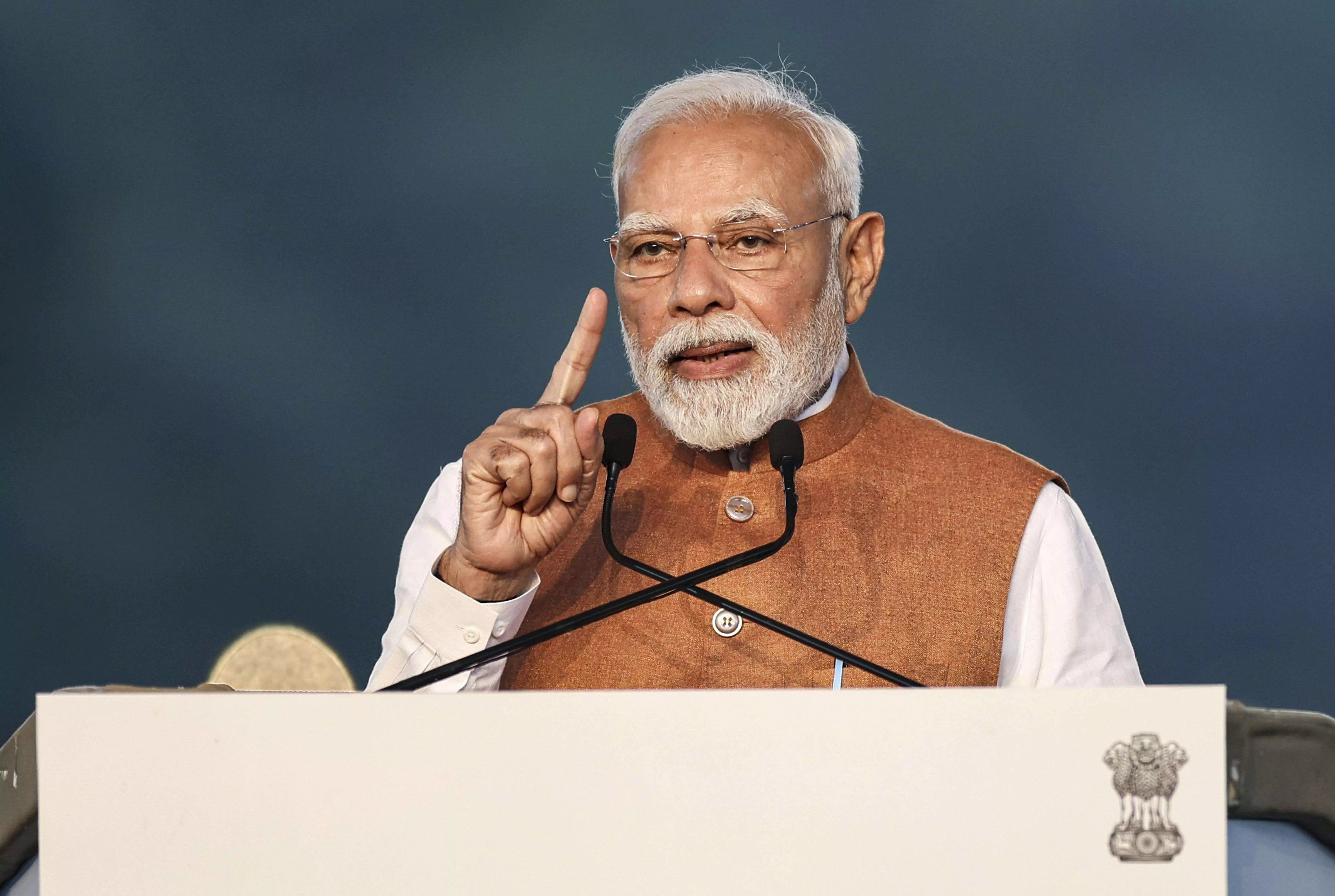"Ready to pay personal price" | PM Modi's strong message over Trump's tariffs

New Delhi: In a subtle message directed at US President Donald Trump, Prime Minister Narendra Modi said on Thursday that India will never compromise on the interests of its farmers, fishermen and dairy sector, and declared he was prepared to bear a significant personal cost if necessary. The statement came a day after Trump ratcheted up tariffs on Indian goods to 50 per cent, even as the two nations discuss a bilateral trade deal. The trade deal has been stuck over the US demand for greater access to India's agricultural and dairy market. The US wants reduced tariffs on products like corn, soybeans, apples, almonds and ethanol, as well as increased access for US dairy products. New Delhi is, however, resisting these demands as these will have a direct bearing on farmers. "Hamare liye apne kisaanon ka hit sarvoch prathamikta hai. Bharat apne kisaanon, pashu-paalakon aur macchuaare bhai-bahanon ke hiton ke saath kabhi bhi samjhuata nahin karega. (For us, the interests of farmers are our top priority. India will never compromise on the interests of its farmers, dairy farmers and fishermen)," Modi said.
He was addressing a global conference to mark the birth centenary of late agri-scientist M S Swaminathan, the architect of India's Green Revolution. To protect farmers' interests, the prime minister said he was ready to personally pay a huge price. "Main jaanta hoon ki vyaktigat roop se mujhe bahut badi keemat chukaanee padegi. Lekin main iske liye taiyaar hoon. (I know that I will personally have to pay a heavy price. But I am ready for it)," Modi said. India today is ready (to pay the price) for the fishermen and dairy farmers, he stressed. The US has further hiked the trade tariffs on Indian goods to put pressure on India to reduce its dependency on Russia for crude oil. On the occasion, Modi also released a commemorative coin and stamp in honour of the legendary scientist. Outlining his vision for Indian agriculture, the Prime Minister emphasised the need to ensure nutritional security, crop diversification and development of climate-resilient crop varieties and technology integration. He called for developing drought-tolerant, heat-resistant, and flood-adaptive crops while pushing for AI and machine learning integration in agricultural systems. The Prime Minister suggested that real-time decision support systems could be made accessible in every district to forecast crop yields, monitor pests, and guide farming practices. Modi called for increased research on crop rotation and soil-specific suitability and further stressed the need to develop affordable soil testing tools and effective nutrient management techniques. He also talked about the need to intensify efforts towards solar-powered micro-irrigation and stated that drip systems and precision irrigation must be made more widespread and effective.
Stating that the government has always considered the strength of farmers as the foundation of national progress, Modi highlighted that several schemes like PM-KISAN, PM Fasal Bima Yojana, PM Krishi Sinchai Yojana, PM Kisan Sampada Yojana, creation of 10,000 Farmer Producer Organisations (FPOs) and recent PM Dhan Dhanya Yojana for the all-around development of the farm and allied sector. "The policies formulated in recent years were not merely about assistance, but about instilling confidence among farmers," he said, reiterating the government’s continuous efforts to increase farmers’ income, reduce production cost, and create new sources of revenue. Modi said financial support to cooperatives and self-help groups has given fresh momentum to the rural economy. The e-NAM platform has made it easier for farmers to sell their produce. The event honoured Swaminathan, whom Modi described as a visionary whose contributions transcended any single era. The prime minister recalled Swaminathan's prescient focus on forgotten crops like millets and his early warnings about chemical overuse in farming. "Dr Swaminathan believed the solutions to climate change and nutritional challenges lie in the very crops that have been forgotten," Modi said, underlining how the scientist's work anticipated today's climate adaptation priorities. Modi also recalled that years ago, Swaminathan had suggested transferring the genetic qualities of mangroves into rice, which would help make crops more climate-resilient. He emphasised that "today, as climate adaptation becomes a global priority, it is evident how far-sighted Swaminathan’s thinking truly was." While Swaminathan worked to boost grain production, Modi said he was equally concerned about the environment and soil health. He introduced the concept of the Evergreen Revolution to balance both objectives and address emerging challenges. Swaminathan proposed the idea of Bio-Villages to empower rural communities and farmers, besides promoting innovative ideas such as 'Community Seed Banks and Opportunity Crops.' Union Minister Shivraj Singh Chouhan, Niti Aayog member Ramesh Chand; MS Swaminathan Research Foundation Chairperson Soumya Swaminathan were among others present at the event.



